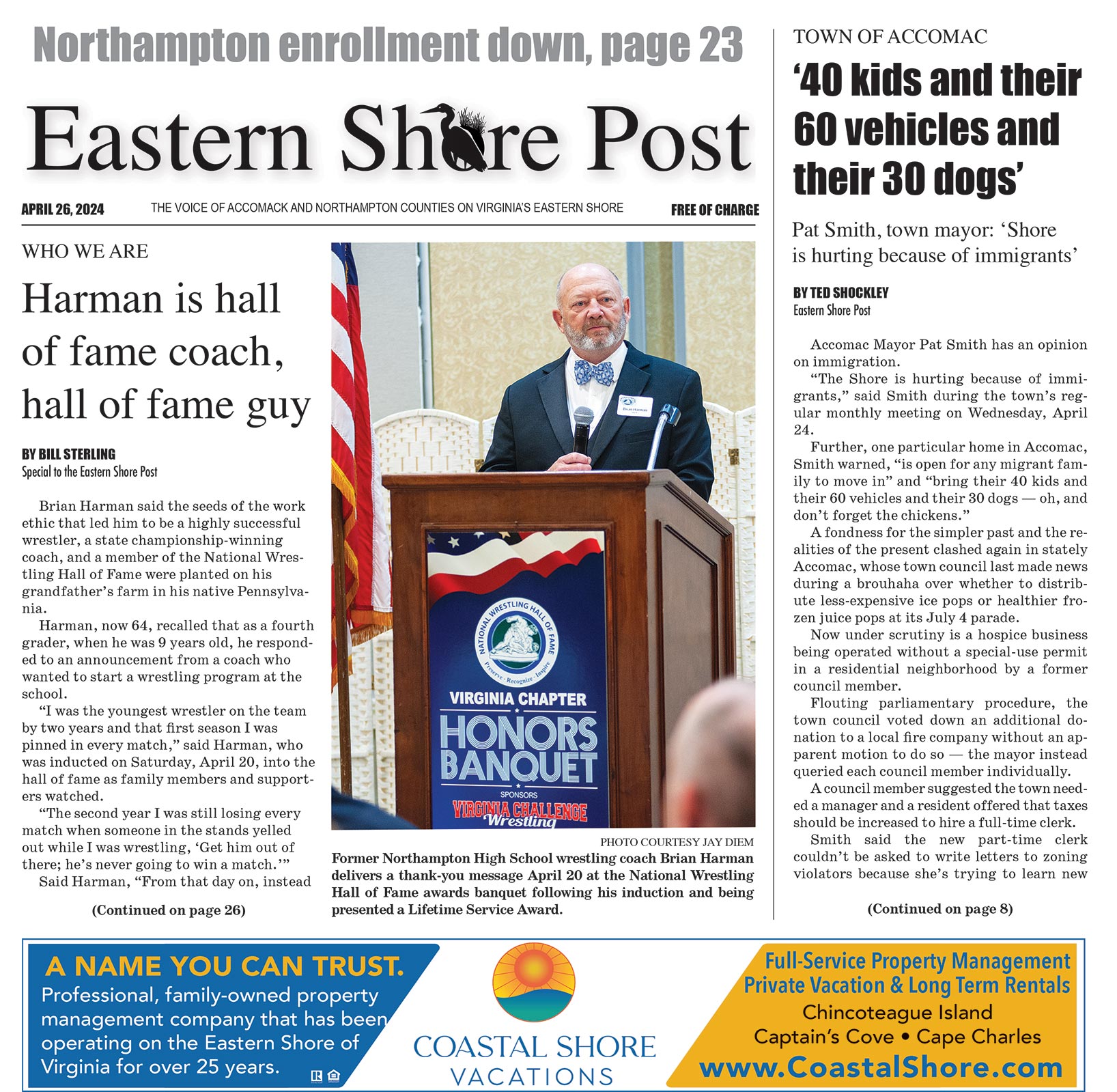By Linda Cicoira
Steven Eric Kremer, former chief of the range and mission management office at NASA Wallops Flight Facility, was given probation Wednesday in U.S. District Court in Norfolk, Va., for stealing government funds and receiving kickbacks.
Documents filed in court this week also disclosed that Kremer, 53, of Berlin, Md., copied more than “200 files from NASA’s computer system to his personal thumb drive” during his last days on the job.
Kremer was sentenced to three years of probation, which includes a year of house arrest. He can freely go to work, church, or for medical care or whatever his probation officer allows.
The disclosure about the thumb drive was part of U.S. Attorney G. Zachary Terwilliger’s written arguments filed with the court. While Terwilliger and Assistant U.S. Attorney V. Kathleen Dougherty asked for a reduction in the defendant’s offense level because of his guilty pleas, they argued his punishment should stay within the guidelines of 27 to 33 months in prison.
Kremer oversaw $191 million worth of contracts at NASA. From 2008 to 2015, he also stole government funds and received kickbacks while being paid a six-figure salary.
According to court records, Kremer and his family annually spent a week at a woman’s vacation home in Cape Charles in return for his helping her company secure work at NASA. The woman, who was referred to as SC, also obtained art for Kremer using government funds totaling $17,820.
She was not charged with crimes in connection with the incidents. Her company is “a privately held small business located in Annapolis, Md., that provides commercial furniture and interior design services to local, state, and federal government agencies.” Text messages between Kremer and SC helped make the case. Court records stated, “In or about mid-December 2011, SC delivered the personalized artwork to Kremer, along with other interior design supplies for Kremer’s personal use.” She then submitted an invoice for $1,000 for two whiteboards.
Court records also stated Kremer bought himself gift cards under the guise that he and staff needed reference books for the job. Instead, the cards were used to purchase beauty and skincare products, luggage, apparel, footwear, sporting equipment, cell phone accessories, and kitchen appliances.
The engineer awarded contracts for launch range operations support such as radar, telemetry, logistics, tracking, and communications services. The contracts were for services at test facilities and launch control centers. He did this job in 2014 when an Antares rocket exploded on the launchpad.
Details about the files he copied were not disclosed. His presentence report was sealed from public view.
“These files included information that had been formally marked as limited distribution and ‘For Official Use Only,’” U.S. Attorney G. Zachary Terwilliger wrote. “Fortunately, none was classified. As a 30-year employee of NASA, Mr. Kremer was keenly aware that unauthorized removal of NASA files onto an unencrypted, unsecured external device — particularly as he left the government and became a private citizen” was not allowed. “This decision, again, reflects poor choices made by the defendant during his NASA employment.”
“While the loss amount to NASA is not particularly high, Mr. Kremer’s brazen misuse of his position of power, the length of time he abused his discretion, his direct theft of government funds for his own indulgent uses, and his choice to remove NASA documents from Wallops without authorization after resigning, all weigh in favor of a sentence within the advisory sentencing guidelines range,” Terwilliger stated.
“The United States would highlight the need for this sentence to promote respect for the law and to provide just punishment for Mr. Kremer’s choices,” the prosecutor said. “The sentence selected should provide a deterrent effect to high-ranking officials such as Mr. Kremer … when that trust is abused, and the interests of the public are ignored in favor of the official’s personal preferences, there must be meaningful consequences.”
Defense lawyer Lawrence Woodward Jr. said, “A sentence of probation is sufficient … The court should give great consideration and weigh with extreme care the devastating effect that incarceration will have on the defendant’s family.” Records state one daughter is autistic and the other suffers from depression. “Kremer was an extremely valuable and dedicated employee to NASA for decades … even while Mr. Kremer was pending removal from his position and facing unemployment, he continued to work diligently to ensure that the mission of NASA was carried out,” Woodward said. “It is particularly worth noting that even after he was terminated, he continued to assist and help with the transition of the project he was working on … The conduct which he engaged in was certainly a significant breach of professional standards and constituted very bad choices, but the overall seriousness of it should be placed in proper context. The amount of money involved is extremely small in the context of cases normally brought before this court. Most of the money that was spent improperly was used to benefit robotics and science clubs for teenagers.” Woodard wrote in the record that the use of the beach house was initially set up by Kremer’s wife.
In March, District Judge Henry C. Morgan Jr. granted Kremer permission to travel to Coinjock, N.C., “for the purpose of meeting with a construction manager pursuant to his employment at Blue Water Development Corporation on March 25, 2019.” His bond restricts him to Virginia, Maryland, Delaware, and West Virginia.
The maximum penalty for receipt of gratuities by a public official is two years in prison and a fine of $250,000. The maximum sentence for theft of government funds is 10 years; a $250,000 fine; restitution, which is $19,469 in this case; forfeiture of assets, which is $37,289; and three years of supervised release.
A consent order calls for forfeiture of $37,289.



